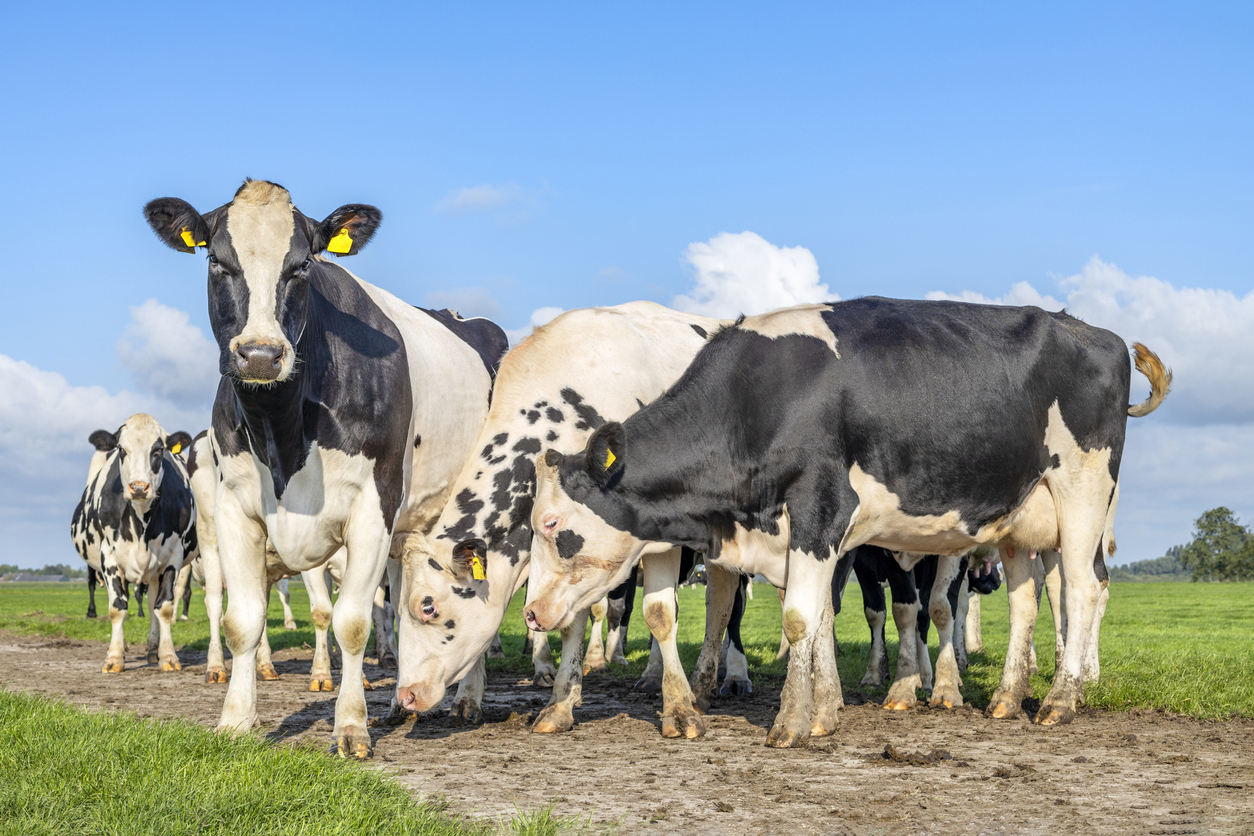With the arrival of spring, Culicoides activity, which had slowed or stopped during the winter season, gradually resumed. In the context of BTV-3 disease, this seasonal shift is particularly relevant. Depending on the weather conditions, and therefore the country, the date of resumption of vector activity as defined in accordance with Delegated Regulation (EU) 2020/689 is different:
- Italy: from 24th January to 13th March, depending on the region
- Portugal: 26th March
- Austria: 31th March
- Spain: 9th April
- Slovenia: 22nd April
- Romania: 24th April
- Czech Republic: 1st May
For many countries (Germany, France, Poland, etc.), these data are not published. We can therefore estimate the date of resumption of vector activity by referring to other areas with a similar climate. However, it is also possible that Culicoides activity will not stop if winter weather conditions are favourable.
At the present time (27 June 2025), we feel it is necessary to provide an update on the incidence of Bluetongue disease serotype 3 (BTV-3 disease) Europe. This new vector-borne disease, which appeared in September 2023 in the Netherlands, is transmitted by these midges.
Prefer to listen to this article? Click the play button below and enjoy our podcast!
BTV-3 disease: new outbreaks in 2025
Several countries have reported new outbreaks of Blue Tongue Disease serotype 3 since the resumption of vector activity. Norway and the United Kingdom reported the first cases of the year on 24 March. Since August 2024, the UK has reported 259 cases of BTV-3, including around 100 since October 2024
In Germany, the disease is still progressing: 160 cases were reported in April and 72 in May. Interestingly, most of these cases (60) concerned cattle farms, only 7 in sheep farms. The other cases concerned red deer (3) and alpaca (2) farms. It would appear that the incidence of the disease is declining in Germany, but the vector's season of activity is not sufficiently advanced to draw any definitive conclusions.
In Austria, on the other hand, the number of new cases remains stable, albeit low (8 in April, 7 in May). 55 new cases have been reported in Switzerland.
In France, between 5 August 2024 and 1 June 2025, 10,813 outbreaks had been recorded, including around 600 since the resumption of vector activity. However, since the beginning of June, only 3 new outbreaks have been reported.
In Spain, the first outbreak of the new season was declared on 23 June.
To date, the Netherlands, Luxembourg, Belgium and Poland have not reported any new cases since the beginning of 2025.
Key messages
- BTV-3 continues to spread in Europe
- Experience in previous years has shown that the incidence of the disease in June does not predict what will happen at the end of summer and in autumn. It is therefore important to remain vigilant and not neglect vaccination protection to control the spread of the disease.

References
https://ruminanthw.org.uk/latest-bluetongue-announcement/
https://agriculture.gouv.fr/la-situation-de-la-fievre-catarrhale-ovine-fco-en-france
https://www.nvwa.nl/documenten/dier/dierziekten/blauwtong/publicaties/blauwtong-positief-2025
About the author
Philippe Gisbert (Ruminants Global Technical Manager)
Philippe Gisbert started his career in 1994 as a Vet practitioner working with companion and farm animals for over 9 years. He then became Health Affairs Manager for Group Agena (artificial insemination company). In 2008 he joined Eurofins – Laboratoire Coeur de France as Animal Health Unit Manager where he worked for 7 years until he joined Ceva France as Technical Manager Ruminants (Infectiology, Vaccines and Diagnostic). Since 2020 he is Global Technical Manager for Biologicals, Udder Health and Antiinflammatories. He is a member of SIMV diagnostic and anti-infective technical groups and has integrated different working groups of ANSES and UNCEIA related to epidemiology, antibiotic resistance and reproduction in livestock.
Explore author’s articles

Leave your comments here